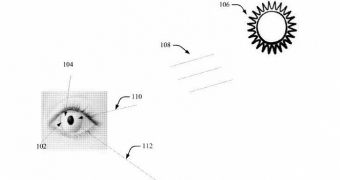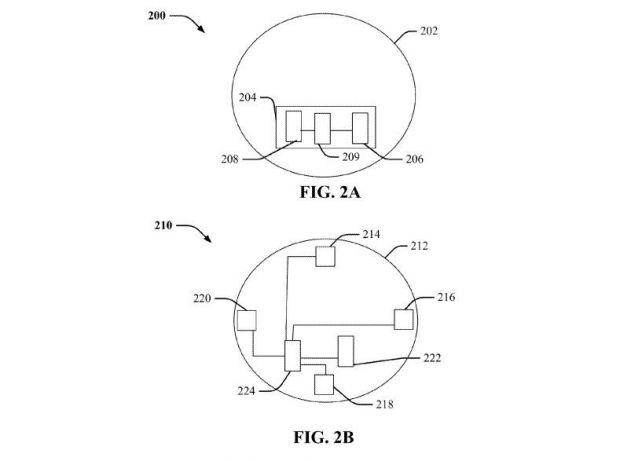Ever since news that Google had patented some really smart contact lenses to detect sugar levels in tears to help out people suffering of diabetes, the idea that the company may be working on more tech that could turn the world into a sci-fi set didn’t seem that far-fetched.
Well, it seems that everyone’s hunches weren’t that far off the mark. In fact, Google has filed a couple of new patent requests related to this area.
If Google has its way, special contact lenses could basically turn the human eye into a fingerprint. Since everyone has a unique pattern within the eye, the technology should work well. The lenses would need to have capacitive sensors to ensure that it is indeed an actual eyeball and not a glass replica.
Of course, the idea that it might not be an actual eye makes us all think of the Minority Report scene with Tom Cruise from some years back and it’s enough to give us the heebie-jeebies. Let’s just hope no one gets ideas from it.
The patent reveals that the process has three steps. The first one is pretty basic and involves receiving light on an iris of an eye. Then, one or more light sensors disposed on or within the transparent lens covering at least a portion of the eye, detects the light reflected on the iris of the eye, which then creates an image data showing the pattern associated with the iris.
The third step is “outputting an iris fingerprint based in part on the image data.” Thanks to this, reading the iris patterns makes for a more reliable process at later times.
The capacitive sensors on the lenses will make it impossible to use anything but the eye to unlock a certain thing, so copies won’t work, which is a good thing for security reasons.
In Minority Report, for instance, Tom Cruise uses a couple of eyes that had been ripped off from someone to unlock a door. This gruesome part would be impossible with Google’s lenses because they should be able to not only detect whether it is a human eye that the lens is attached on, but also if it’s yours.
The lenses could end up picking up on a lot more information, including how liquid the eye produces, how often you blink and so on. Overall, they should be able to be fooled by anyone.
Considering that the basic usage for such a thing would be for high security necessities and not regular smartphone unlocking (since no one will even considering buying and wearing this kind of lenses just for this purpose) it might be enough to provide the necessary levels of safety.
It remains to be seen whether Google will actually put the patent in practice at one point or another, but then again, there were few who believed the contact lenses for diabetics would end up on the market. And yet, Google recently announced a partnership that will actually put these new creations on the shelves.

 14 DAY TRIAL //
14 DAY TRIAL // 

